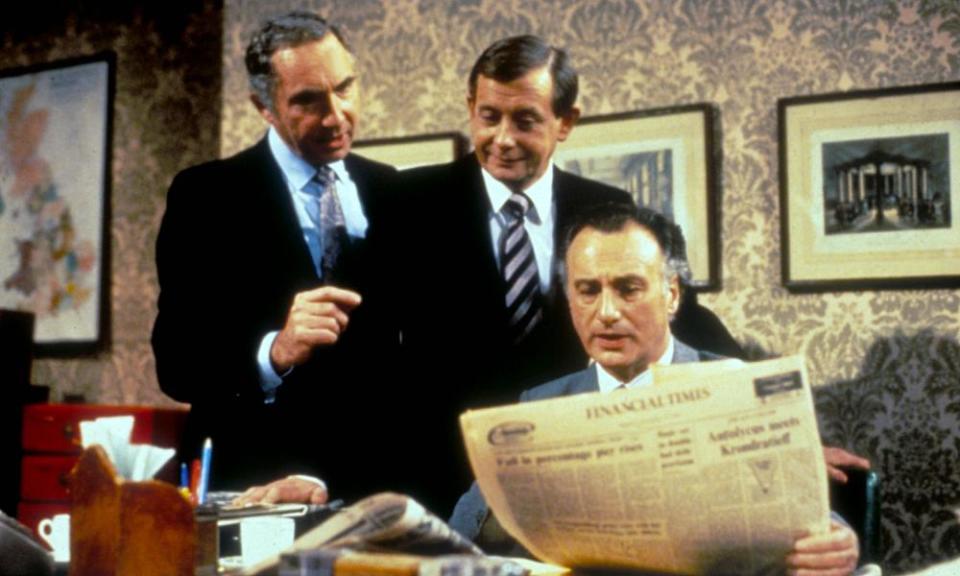Playing politics: Which fictional prime minister is closest to reality?
What does it say about a country when the most true-to-life depiction of its leader could conceivably be one where he inserts “a private part of his anatomy” into a pig? This seemed an outlandish notion when Charlie Brooker memorably presented it to us in the first Black Mirror episode, The National Anthem, back in 2011. Little did we know that our own dear PM would later be accused of something very similar while a student at Oxford. (In his autobiography, David Cameron described the allegation as “false and ludicrous”.)
Related: The Guide: Staying In – sign up for our home entertainment tips
Despite this remarkable coincidence, Brooker’s satire is also not very true to life because it suffers from the same noble misapprehension that nearly all fictitious depictions suffer from: it treats everyone with too much respect. The PM and his aides seem clever and capable. They know exactly what to do. They are serious people in hideously comical circumstances. You feel that the grownups are in charge even as he commits the heinous act: he is only doing it to save one of the royals from terrorists, after all.
From Pierce Brosnan in The Ghost Writer and Ralph Fiennes in the Worricker Trilogy to Emma Thompson in Years and Years and Ian Richardson in the original House of Cards, even when fictional leaders are corrupt or evil, it all still feels as if they know what they’re doing. Richardson’s Francis Urquhart may be a cold-blooded killer but at least he’s got a handle on things. This is what we want from our imagined prime ministers, because the truth is much more frightening.

The reality of being the prime minister is one of ongoing uncertainty, panic and desperation. Once you get to the top, you realise there is no such thing as grownups, and simply lurch from one crisis to another hoping you don’t accidentally press the nuclear button. To get closer to this unsettling reality you have to look to comedy. In Ali G Indahouse or Little Britain, the prime ministers themselves are dignified and serious but their advisers are clowns who suggest things such as attempting to resolve the conflict in Northern Ireland by getting “some really fit woman to get her babylons out for peace”. This is much closer to reality than the idea that the prime minister is surrounded by urbane and competent brainboxes. One look at Michael Gove could tell you that.
But by far the most true-to-life depiction of the British prime minister is that of Jim Hacker in Yes, Prime Minister. Played by the perfect Paul Eddington, Hacker is a man not so much governing as trying not to look ridiculous. This is what the job is. A vain attempt to prevent a hurricane of excrement from hitting the fan, using nothing more than a fly swatter. Hacker is a befuddled, over-promoted wally who should scarcely be running a provincial solicitors, let alone a country. His advisers are arrogant cynics who invariably make things worse but still end up with knighthoods. Sound familiar?
There is one aspect, however, where Yes, Prime Minister veers from true-to-life into total fiction: Hacker made it all the way to prime minister without going to an elite public school or Oxford University. Pigs might fly.

